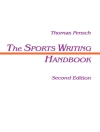Students and teachers need accessible ways to talk about and use grammar. In Gretchen′s trademark style, she gets these ever-important conversations started and keeps them going. This book is a keeper.’
-Jeff Anderson, Author of Revision Decisions and Everyday Editing
Almost everyone could benefit from a grammar check every once in a while—even we teachers. But our students desperately need something much more systematic, and they need it right way.
No matter what state you teach in, you can be certain that grammar is being tested . . . frequently and across the grades! Meanwhile our students entering middle and high school are still making the same errors they made back in third grade. Luckily, Gretchen Bernabei, author of Fun-Size Academic Writing for Serious Learning, comes to the rescue with Grammar Keepers: a kid-friendly cache of 101 lessons and practice pages to help your students internalize the conventions of correctness once and for all.
Gretchen’s secret? Embed the lessons in ten minutes of daily journal writing, then use students’ own writing as models for discussion and practice. Students are much more interested in learning from one another than from stodgy sentences in a dusty primer, and these ultra-relevant examples more easily transfer into students’ talking, thinking, reading, and writing.
Here are the three ingredients of Gretchen’s approach:
We have known for years that traditional grammar instruction falls short for a great many students, but until now we didn’t know how to replace it. With Grammar Keepers, we have the right tool for today’s students. Think of it as the Warriner’s English Grammar and Composition for the spell- and grammar-check generation.
Tabela de Conteúdo
Acknowledgments
Introduction: What’s a Keeper?
Part I. Common Errors
Lesson 1. They’re
Lesson 2. There
Lesson 3. Their
Lesson 4. Too
Lesson 5. Two
Lesson 6. To
Lesson 7. It’s
Lesson 8. Its
Lesson 9. You’re
Lesson 10. Your
Lesson 11. Who
Lesson 12. Whom
Lesson 13. Who’s
Lesson 14. Whose
Lesson 15. We’re
Lesson 16. Were
Lesson 17. Where
Lesson 18. Our
Lesson 19. Are
Lesson 20. Then
Lesson 21. Than
Lesson 22. A Lot
Lesson 23. Already
Lesson 24. All Ready
Lesson 25. All Right
Lesson 26. Less
Lesson 27. Fewer
Lesson 28. Lie
Lesson 29. Lay
Lesson 30. Should’ve
Lesson 31. Used to
Lesson 32. Me/I
Lesson 33. Subject/Verb Agreement
Lesson 34. Accept
Lesson 35. Except
Lesson 36. Loose
Lesson 37. Lose
Lesson 38. Affect
Lesson 39. Effect
Part II. Punctuation
Lesson 40. Apostrophes—Contractions
Lesson 41. Apostrophes—Possessions
Lesson 42. Apostrophes—Plurals
Lesson 43. No Apostrophes—Plurals
Lesson 44. No Apostrophes—Verbs Ending in s
Lesson 45. Commas in a Series
Lesson 46. Commas in a Letter
Lesson 47. Commas in Appositives
Lesson 48. Commas After Beginning Phrases/Clauses
Lesson 49. Commas Before Ending Phrases/Clauses
Lesson 50. Commas With Direct Address
Lesson 51. Commas in a Date
Lesson 52. Commas Between City and State
Lesson 53. Quotations—Question Marks Inside
Lesson 54. Quotations—Ending in Punctuation
Lesson 55. Hyphenated Adjectives
Lesson 56. Colons
Lesson 57. Punctuating Dialogue—Chicken Dance
Part III. Capitalization
Lesson 58. Proper Nouns
Lesson 59. Proper Adjectives
Lesson 60. Letter Closings
Lesson 61. First Words in Sentences
Lesson 62. First Words in Quotations
Part IV. Spelling
Lesson 63. Silent E
Lesson 64. Words Ending in y
Lesson 65. Words Ending in Consonants
Lesson 66. I Before E
Lesson 67. Ce/Ci/Ge/Gi
Part V. Fragments
Lesson 68. Two-Word Sentences
Lesson 69. Sentence Wringer—Psst! Statement
Lesson 70. Sentence Wringer—Is There a Verb?
Lesson 71. Joining Sentences Legally
Lesson 72. Joining Sentences Illegally
Lesson 73. Sentence Wringer Practice
Lesson 74. Paragraph Overhaul
Lesson 75. AAAWWWUBIfication
Part VI. Pitchforking
Lesson 76. Pitchforking Actions
Lesson 77. Pitchforking Nouns
Lesson 78. Pitchforking Using Ba-Da-Bing
Lesson 79. Pitchforking Using Exclamations
Lesson 80. Pitchforking Using Descriptions
Lesson 81. Pitchforking Using Sounds
Lesson 82. Pitchforking Using Smells/Tastes
Lesson 83. Pitchforking Using Contrasts
Lesson 84. Pitchforking Using Participial Phrases
Lesson 85. Pitchforking Using Absolutes
Part VII. Parts of Speech
Lesson 86. Nouns
Lesson 87. Verbs
Lesson 88. Adjectives
Lesson 89. Adverbs
Lesson 90. Pronouns
Lesson 91. Prepositions
Lesson 92. Conjunctions
Lesson 93. Interjections
Lesson 94. Sentence Patterns
Part VIII. Beyond Verbs
Lesson 95. Direct Objects
Lesson 96. Indirect Objects
Lesson 97. Gerunds
Lesson 98. Participial Phrases
Lesson 99. Infinitives
Lesson 100. Predicate Nominatives
Lesson 101. Predicate Adjectives
Appendix
Sobre o autor
A popular workshop presenter and winner of NCTE’s James Moffett Award in 2010, Gretchen Bernabei has been teaching kids to write in middle school and high school classrooms for more than thirty years. In addition to four other professional books and numerous articles for NCTE journals, she is the author of National Geographic School Publications’ The Good Writer’s Kit, as well as Lightning in a Bottle, a CD of visual writing prompts.












